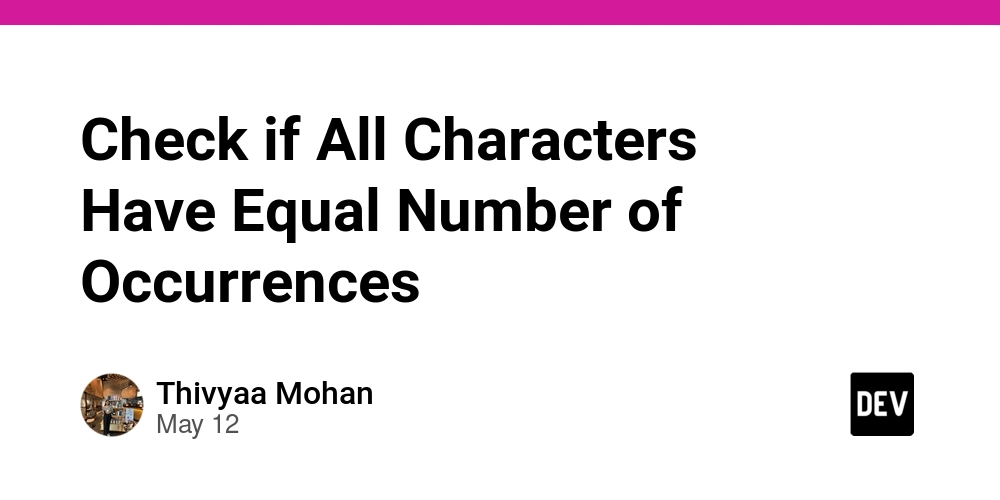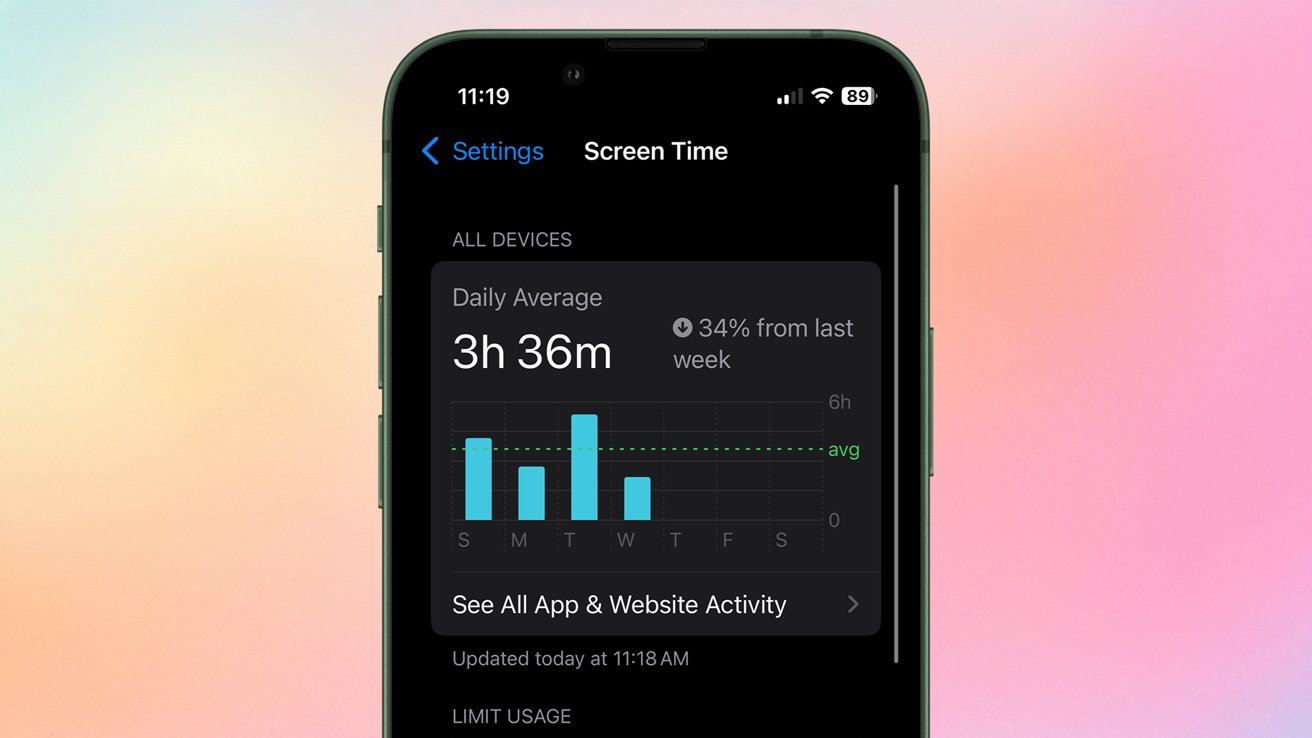Check if All Characters Have Equal Number of Occurrences
Given a string s, return true if s is a good string, or false otherwise. A string s is good if all the characters that appear in s have the same number of occurrences (i.e., the same frequency). Example 1: Input: s = "abacbc" Output: true Explanation: The characters that appear in s are 'a', 'b', and 'c'. All characters occur 2 times in s. Example 2: Input: s = "aaabb" Output: false Explanation: The characters that appear in s are 'a' and 'b'. 'a' occurs 3 times while 'b' occurs 2 times, which is not the same number of times. Constraints: 1

Given a string s, return true if s is a good string, or false otherwise.
A string s is good if all the characters that appear in s have the same number of occurrences (i.e., the same frequency).
Example 1:
Input: s = "abacbc"
Output: true
Explanation: The characters that appear in s are 'a', 'b', and 'c'. All characters occur 2 times in s.
Example 2:
Input: s = "aaabb"
Output: false
Explanation: The characters that appear in s are 'a' and 'b'.
'a' occurs 3 times while 'b' occurs 2 times, which is not the same number of times.
Constraints:
1 <= s.length <= 1000
s consists of lowercase English letters.
class Solution:
def areOccurrencesEqual(self, s: str) -> bool:
from collections import Counter
freq = Counter(s)
values = set(freq.values())
return len(values) == 1
✅ Example 1: s = "abacbc"
freq = Counter(s) # {'a': 2, 'b': 2, 'c': 2}
freq.values() # dict_values([2, 2, 2])
set(freq.values()) # {2}
len(set(freq.values())) # 1 → True ✅
✔️ All characters occur 2 times → set has just one unique value (2)
❌ Example 2: s = "aaabb"
freq = Counter(s) # {'a': 3, 'b': 2}
freq.values() # dict_values([3, 2])
set(freq.values()) # {2, 3}
len(set(freq.values())) # 2 → False ❌
✖️ Frequencies differ (3 and 2) → set has two values → return False
✅ Example 3: s = "xyz"
freq = Counter(s) # {'x': 1, 'y': 1, 'z': 1}
freq.values() # dict_values([1, 1, 1])
set(freq.values()) # {1}
len(set(freq.values())) # 1 → True ✅
✔️ Each character occurs once → return True
❌ Example 4: s = "aaabbbcc"
freq = Counter(s) # {'a': 3, 'b': 3, 'c': 2}
freq.values() # dict_values([3, 3, 2])
set(freq.values()) # {2, 3}
len(set(freq.values())) # 2 → False ❌
✖️ Different counts → return False
✅ Example 5: s = "a"
freq = Counter(s) # {'a': 1}
freq.values() # dict_values([1])
set(freq.values()) # {1}
len(set(freq.values())) # 1 → True ✅
✔️ Only one character → always valid → return True
✅ Time Complexity:
Counter(s):
This goes through the entire string s once to count frequencies.
Time: O(n) where n is the length of the string.
freq.values():
Extracts the frequency values, which is proportional to the number of unique characters.
Worst case (e.g., all characters different): O(n)
set(freq.values()):
Building a set from up to n frequency values.
Time: O(k) where k is the number of unique characters (bounded by 26 if only lowercase letters).
len(values) == 1:
Constant time: O(1)














































































































































































![[The AI Show Episode 156]: AI Answers - Data Privacy, AI Roadmaps, Regulated Industries, Selling AI to the C-Suite & Change Management](https://www.marketingaiinstitute.com/hubfs/ep%20156%20cover.png)
![[The AI Show Episode 155]: The New Jobs AI Will Create, Amazon CEO: AI Will Cut Jobs, Your Brain on ChatGPT, Possible OpenAI-Microsoft Breakup & Veo 3 IP Issues](https://www.marketingaiinstitute.com/hubfs/ep%20155%20cover.png)





































































































































































































































































_incamerastock_Alamy.jpg?width=1280&auto=webp&quality=80&disable=upscale#)
_Brain_light_Alamy.jpg?width=1280&auto=webp&quality=80&disable=upscale#)






























































































![Senators reintroduce App Store bill to rein in ‘gatekeeper power in the app economy’ [U]](https://i0.wp.com/9to5mac.com/wp-content/uploads/sites/6/2025/06/app-store-senate.jpg?resize=1200%2C628&quality=82&strip=all&ssl=1)























































































